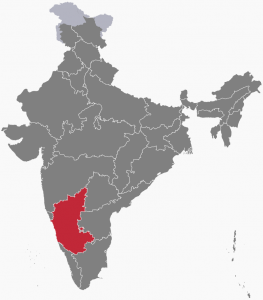 Karnataka state, where the Indian National Congress party defeated the former ruling Bharatiya Janata Party (BJP) in state elections on 10 May, is set to introduce legislation to repeal the controversial anti-conversion law introduced by the BJP last year.
Karnataka state, where the Indian National Congress party defeated the former ruling Bharatiya Janata Party (BJP) in state elections on 10 May, is set to introduce legislation to repeal the controversial anti-conversion law introduced by the BJP last year.
The “Karnataka Protection of Right to Freedom of Religion Act” provided for three to five years in prison for “forcibly” converting anyone and up to ten years for conversion involving minors, women or members of marginalised groups. It was signed into law by the state governor in May 2022 amid protests by civil society groups, opposition parties and churches. The Congress party promised to repeal the Act in its manifesto for the 2023 state elections.
On 15 June Karnataka’s Law and Parliamentary Affairs Minister H. K. Patil announced that the Act would be repealed in the next session of the state Legislative Assembly, which is scheduled to begin on 5 July. The new government also plans to reverse changes made to school textbooks that promoted Hindutva ideology.
Members of Narendra Modi’s Hindu nationalist BJP have condemned the planned repeal, with one opposition politician accusing the new government of having an “anti-Hindu agenda“.
Anti-conversion laws (officially “Protection of Right to Freedom of Religion” laws) are in force in nine other Indian states, most led by the BJP. The laws are intended to prevent Hindus converting to other religions but lead to increased violence against Christians because extremists use them as a licence to carry out attacks, falsely accusing Christians of forcibly converting Hindus.
Campaign against the law
A campaign against Karnataka’s anti-conversion law led by Catholic Archbishop Peter Machado of Bangalore (the state capital), who is president of the All Karnataka United Forum for Christian Human Rights, had the support of more than sixty civil society groups as well as churches, and the announcement of the repeal bill has been widely welcomed.
In a press statement following the announcement of the repeal bill, Archbishop Machado said, “We are happy with the decision to repeal the anti-conversion law passed by the previous government. It was discriminatory, anti-constitutional and unnecessary. I hope it [the repeal bill] will have a comfortable passage in the assembly when it is brought up for discussion.
“On behalf of the Christian Community, I express my profound gratitude and satisfaction towards the Government of Karnataka… for this commendable step, taken in response to concerns raised by various stakeholders and in recognition of the importance of upholding fundamental rights.”
The Archbishop stated that wherever anti-conversion laws are approved attacks against Christians increase, saying such laws “encourage fringe elements to attack and cause harm to Christians. They create doubts, mistrust and disharmony between communities. I hope the other states will also follow suit and scrap their laws.”
Archbishop Machado added that “the repeal of this controversial bill… reaffirms the belief that the legislation was not only detrimental to the individual’s freedom of religion but also stood in direct contradiction to the provisions enshrined in Article 25 of the Indian Constitution. This article guarantees the freedom to practice, profess, and propagate any religion, a fundamental right essential for a diverse and pluralistic society.”
A representative of the Syro-Malabar Church stated in a press release that the decision to repeal “deserves appreciation by all those who stand for democracy and human rights“.
(Asia News, Church in Chains “Anti-conversion laws” Topic, Crux, The Quint, Voice of the Martyrs Canada)
